Vietnamese hair extensions are renowned worldwide for their exceptional quality, durability, and natural appearance. However, when these premium extensions undergo bleaching - whether to achieve blonde tones, pastel colors, or to match a specific hair shade - the process can strip the hair of its natural moisture and proteins. This creates a unique challenge: how to hydrate Vietnamese hair extensions after bleaching without compromising the extensions' longevity or appearance.
As an expert hair extension specialist with over a decade of experience working specifically with Vietnamese hair extensions, I can attest that proper hydration post-bleaching isn't just beneficial - it's essential for maintaining your investment. The good news? With the right knowledge and products, you can restore your extensions to their former glory, ensuring they remain soft, manageable, and beautiful for months to come.
I. Why Vietnamese Hair Extensions Are Perfect for Bleaching
Before diving into hydration techniques, it's important to understand what makes Vietnamese hair extensions unique when it comes to chemical processing.
1. The Natural Structure of Vietnamese Hair
Vietnamese hair is naturally strong, thick, and resilient due to its cuticle structure. The cuticles in Vietnamese hair tend to be tightly packed and abundant, creating hair that's naturally:
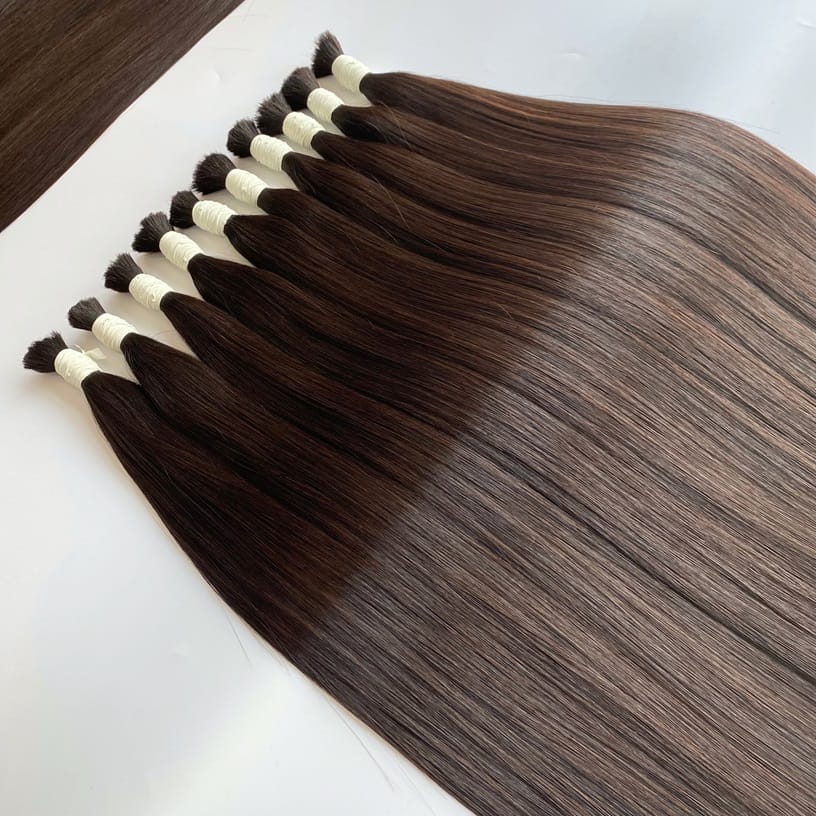
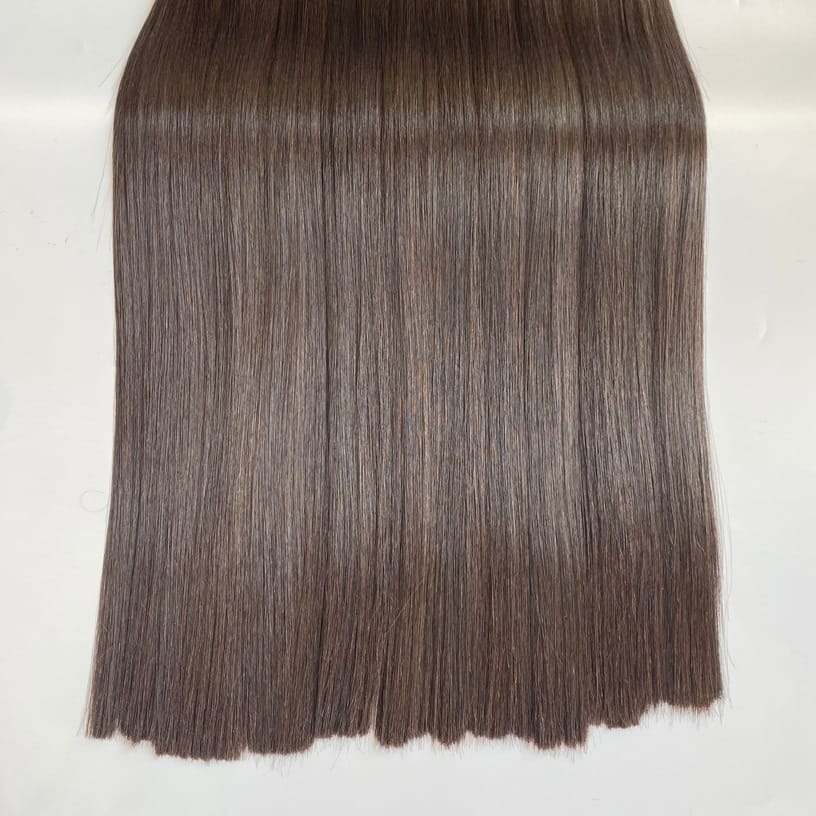
- Smoother and more reflective (giving that coveted shine).
- More resistant to breakage and damage.
- Better at retaining moisture in normal conditions.
- Capable of withstanding styling heat better than many other hair types.
Read Now: Why Is Human Hair Vietnam Hair Highly Regarded in The Hair Industry?
2. What Happens During the Bleaching Process
When bleach (hydrogen peroxide typically mixed with an alkaline agent) comes into contact with hair:
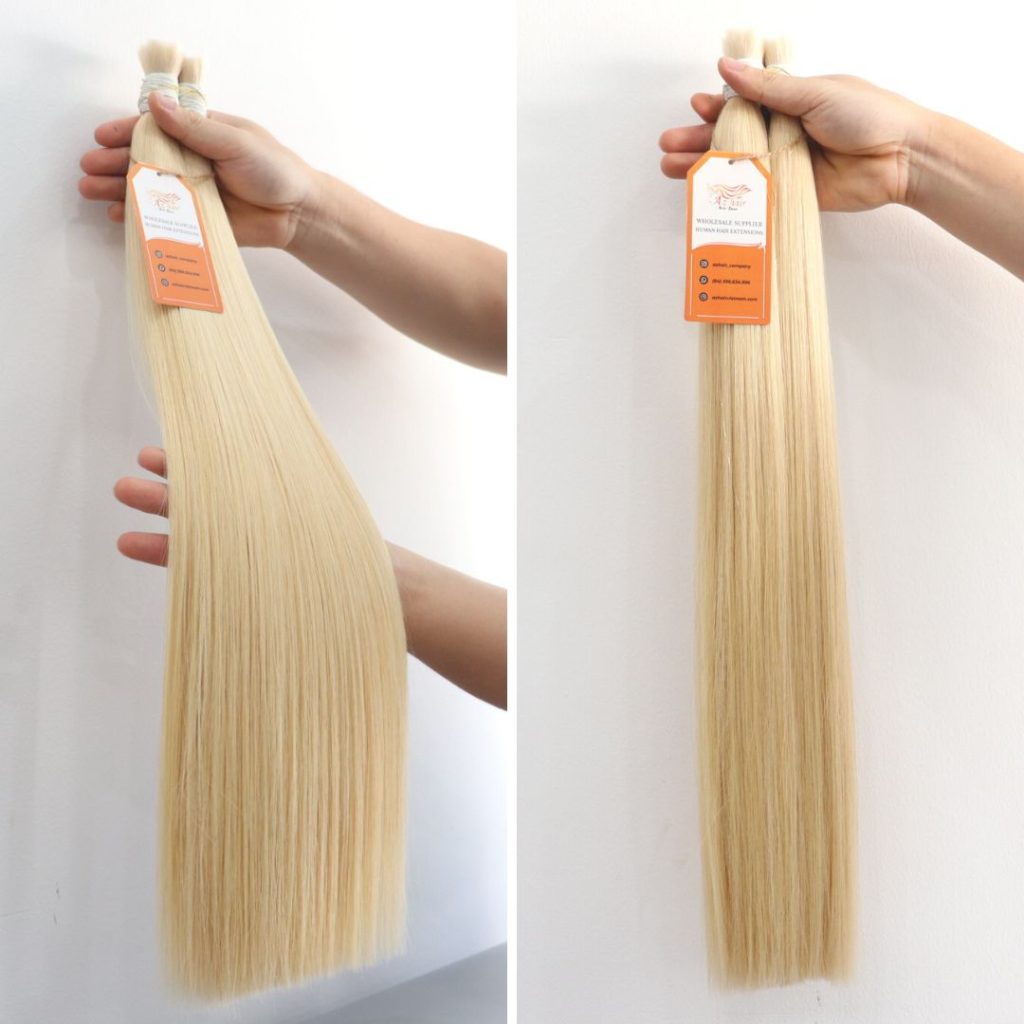
- It penetrates the hair shaft
- It dissolves the natural pigment (melanin)
- It breaks down protein bonds
- It removes natural oils and moisture
This process affects all hair types, but Vietnamese hair extensions can sometimes experience more dramatic dryness post-bleaching precisely because of their dense cuticle structure. Once those protective layers are compromised, hydration becomes crucial.
Read Now: Bleaching Vietnamese Hair Extensions at Home: A Step-by-Step Guide
II. Signs Your Bleached Extensions Need Hydration
How can you tell if your Vietnamese hair extensions are suffering from dehydration after bleaching? Look for these telltale signs:
- Tangling: Hair that knots easily and constantly
- Roughness: A straw-like texture when you run your fingers through the hair
- Dullness: Loss of natural shine and reflection
- Frizz: Hair that refuses to lie smoothly despite styling efforts
- Breakage: Small hair fragments when brushing or styling
- Difficulty styling: Hair that won't hold curls or straighten as it used to
If you notice two or more of these signs, your extensions are crying out for intensive hydration treatments.
III. The 7-Step Hydrate Vietnamese Hair Extensions After Bleaching
Follow this comprehensive protocol to restore moisture to your bleached Vietnamese hair extensions:
Hydrate Vietnamese Hair Extensions After Bleaching - Step #1: Deep Cleansing with a Gentle Clarifying Shampoo
Before you can effectively hydrate extensions, you need a clean foundation. Bleached hair can retain product residue more stubbornly than unprocessed hair. Here is how to do it:
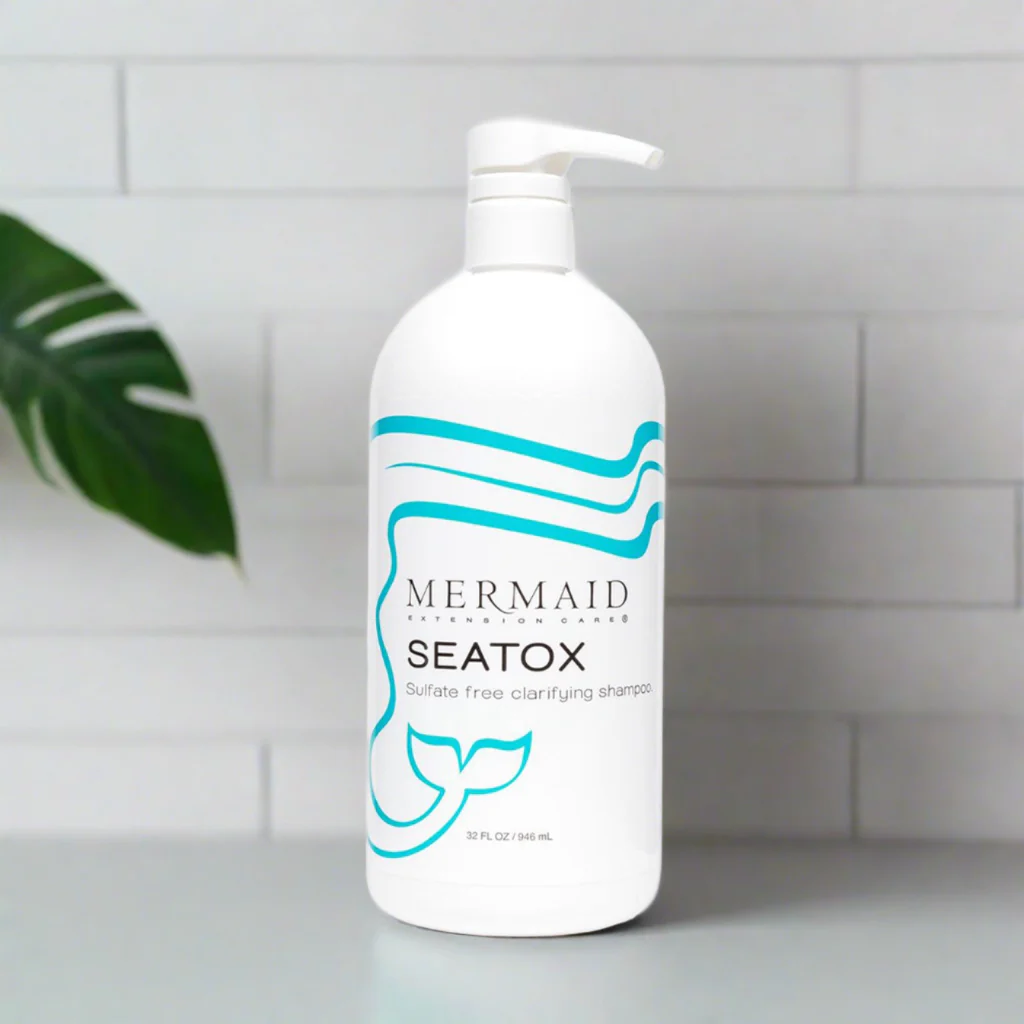
- Use a sulfate-free clarifying shampoo specifically formulated for color-treated or damaged hair
- Apply to wet extensions, gently working the product from roots to ends
- Rinse thoroughly with lukewarm water (never hot!)
- Repeat if you've been using heavy styling products
Pro tip: Add 1 tablespoon of apple cider vinegar to 2 cups of water for a final rinse. This helps balance pH levels and close the cuticle.
Step #2: Protein Treatment to Rebuild Structural Integrity
Bleaching breaks down the protein bonds in hair. A targeted protein treatment helps rebuild these structures. Here is the way to do it:
- Apply a professional-grade protein treatment designed for chemically processed hair
- Distribute evenly through damp extensions
- Cover with a shower cap and leave on for the time specified by the product (usually 15-30 minutes)
- Rinse thoroughly with cool water
Important note: Don't overdo protein treatments as they can cause hair to become brittle. For bleached Vietnamese extensions, once every 2-3 weeks is typically sufficient.
Hydrate Vietnamese Hair Extensions After Bleaching - Step #3: Deep Conditioning Hydration Mask
Now that you've addressed protein loss, it's time for serious moisture replenishment. How to do it:
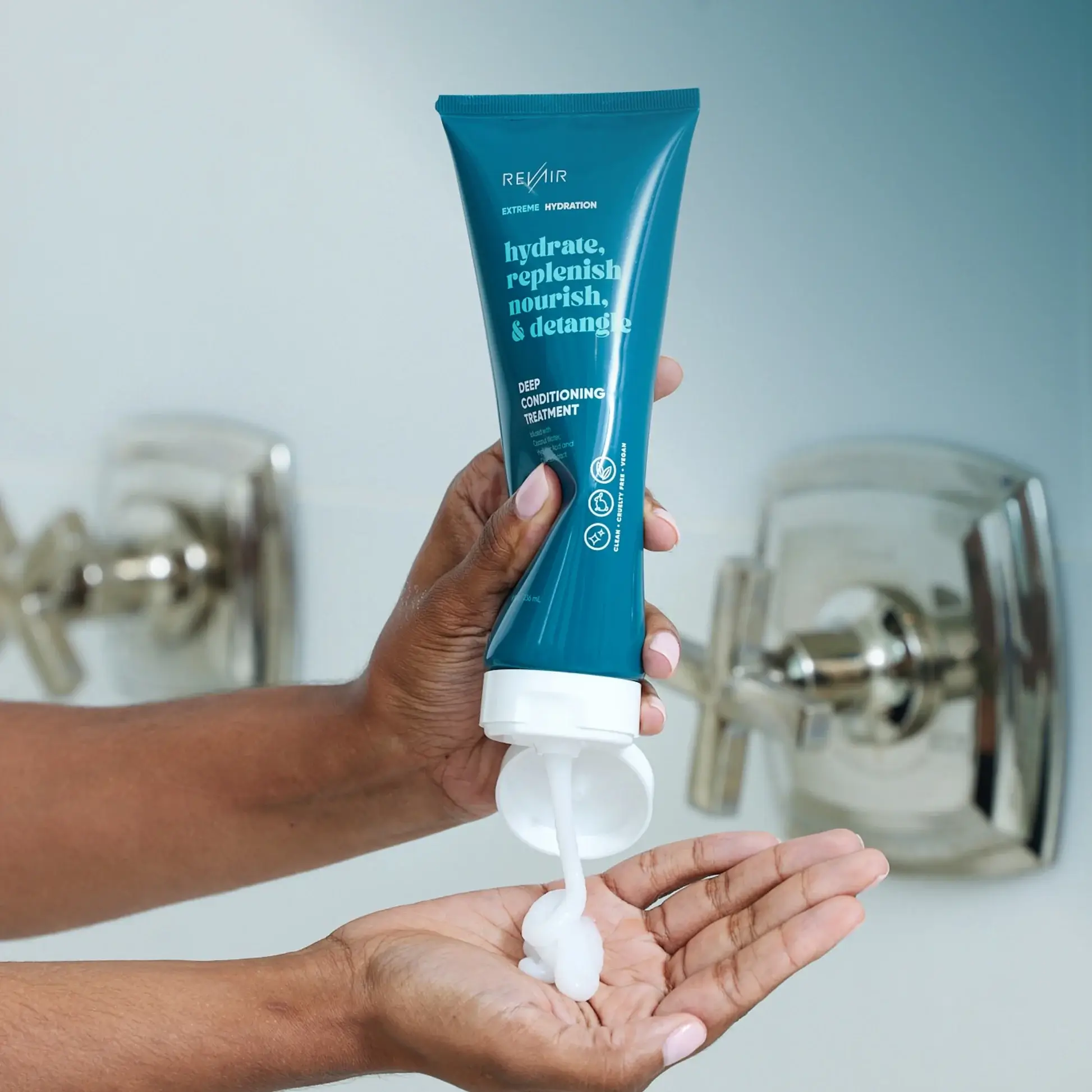
- Apply a rich hydrating mask generously to damp extensions
- Focus on mid-lengths and ends where dryness is most apparent
- Cover with a shower cap and apply gentle heat (a warm towel or hooded dryer on a low setting)
- Allow the mask to penetrate for 30-45 minutes
- Rinse with cool water
Product recommendation: Look for masks containing ingredients like argan oil, shea butter, and hyaluronic acid for maximum hydration benefits.
Step #4: Leave-in Conditioner Application
This step provides a protective layer that continues to hydrate throughout the day. How to do it:
- Gently squeeze excess water from extensions
- Apply a quarter-sized amount of leave-in conditioner
- Distribute evenly using a wide-tooth comb
- Pay special attention to the ends
Hydrate Vietnamese Hair Extensions After Bleaching - Step #5: Hydrating Oils for Cuticle Sealing
Natural oils help seal the cuticle and lock in moisture while adding shine. How to do it:
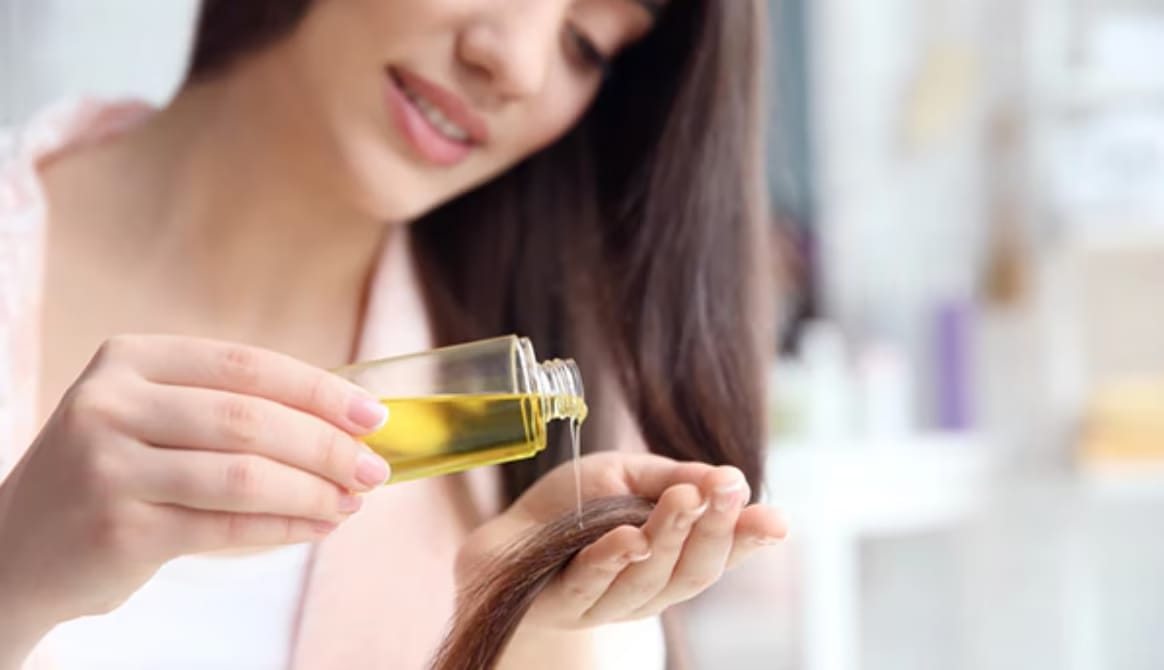
- With extensions still damp, warm 3-5 drops of hair oil between palms
- Apply primarily to mid-lengths and ends
- Avoid roots if you're concerned about extensions looking greasy
- Allow to air dry or proceed with heat styling using protection
Read Now: Top 5 Best Hair Oils for Vietnamese Human Hair Extensions: Complete Care Guide
Step #6: Heat Protection and Styling
Heat styling further depletes moisture, so protection is non-negotiable. How to do it:
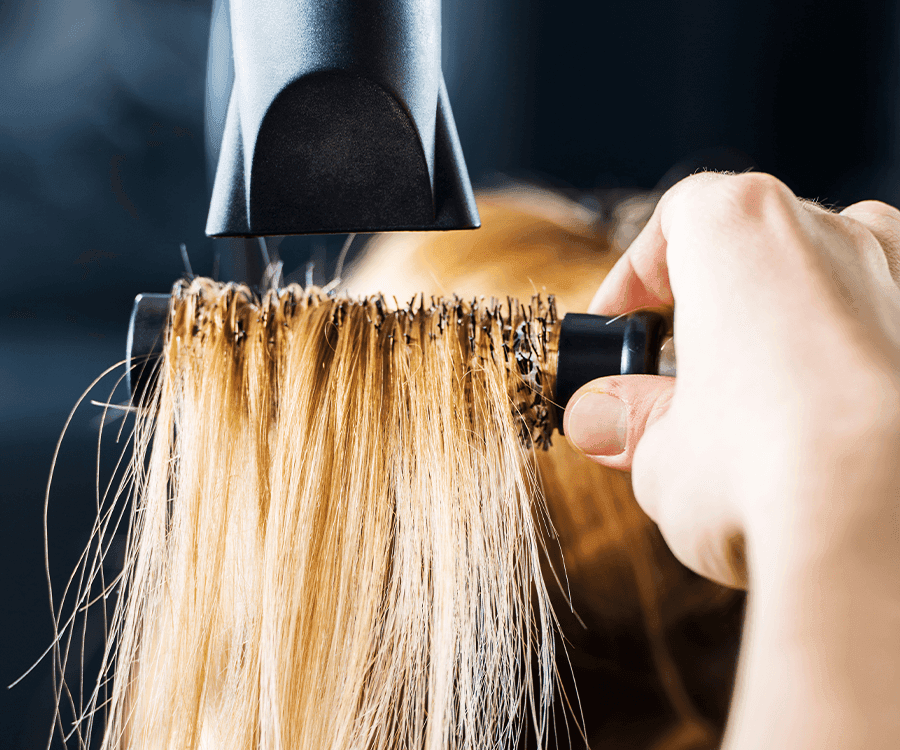
- Apply a high-quality heat protectant spray or serum
- Set styling tools to the lowest effective temperature (ideally below 350°F/180°C)
- Work quickly to minimize heat exposure
- Use a blow dryer with a diffuser attachment on a cool setting when possible
Hydrate Vietnamese Hair Extensions After Bleaching - Step #7: Nighttime Protection Routine
Your hydration efforts can be undone by friction during sleep. How to do it:
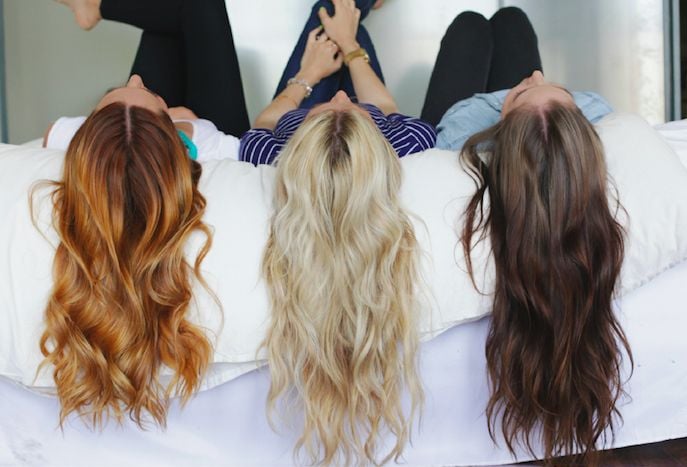
- Apply a few drops of lightweight hair oil to the ends
- Gently braid extensions or secure in a loose bun
- Use a silk or satin pillowcase to minimize friction
- Consider a satin bonnet for maximum protection
Read Now: How To Sleep With Hair Extensions?
IV. Weekly Maintenance for Optimal Hydration
Beyond your intensive hydration protocol, establish this weekly routine:
- Once Per Week: Deep conditioning treatment; Oil treatment focusing on the ends
- Twice Per Week: Light application of leave-in conditioner; Heat-free styling to give extensions a break
- Daily: Mist with a hydrating spray containing glycerin or aloe; Gentle detangling with a wide-tooth comb; Protection from environmental stressors (sun, wind, pollution)
V. Common Mistakes When Hydrating Bleached Vietnamese Hair Extensions
Avoid these pitfalls that can worsen the condition of your bleached extensions:
Mistake #1: Over-washing
Frequent washing strips away natural oils. Limit washing to 2-3 times per week maximum.
Mistake #2: Using regular conditioners as deep conditioners
Regular conditioners aren’t concentrated enough for deep hydration. Invest in proper treatment masks.
Mistake #3: Applying oils to dry hair
Oils work best when applied to damp hair to seal in existing moisture.
Mistake #4: Overdoing protein treatments
Too much protein causes brittleness. Balance protein with moisture treatments.
Mistake #5: Skipping heat protection
Even the most hydrated extensions will suffer from unprotected heat styling.
Mistake #6: Ignoring water quality
Hard water contains minerals that can further dry extensions. Consider a shower filter or final rinse with filtered water.
Frequent washing strips away natural oils. Limit washing to 2-3 times per week maximum.
Regular conditioners aren't concentrated enough for deep hydration. Invest in proper treatment masks.
Oils work best when applied to damp hair to seal in existing moisture.
Too much protein causes brittleness. Balance protein with moisture treatments.
Even the most hydrated extensions will suffer from unprotected heat styling.
Hard water contains minerals that can further dry extensions. Consider a shower filter or final rinse with filtered water.
Read Now: A Step-by-Step Guide to Safely Bleaching Your Hair At Home
VI. Conclusion: Maintaining Beautiful, Hydrated Vietnamese Hair Extensions Long-Term
With proper care and consistent hydration, your bleached Vietnamese hair extensions can maintain their beauty and integrity for months. Remember that hydration isn't a one-time fix but an ongoing commitment to preserving your premium extensions. By following the protocols outlined in this guide, you're not just hydrating extensions; you're preserving an investment and ensuring your style continues to turn heads for all the right reasons. The journey to perfectly hydrated extensions takes time, but the results - silky, manageable, vibrant hair - are absolutely worth the effort.
VII. Ready to Transform Your Hair Extension Experience?
At AZ Hair Vietnam - the first verified Alibaba Vietnamese hair company, we specialize in premium Vietnamese hair extensions and offer professional advice on maintaining their beauty. Browse our collection of ethically sourced extensions and discover why Vietnamese hair continues to be the gold standard in the industry.
Your extension journey doesn't end with purchase - it begins there. Let us be your partner in maintaining gorgeous, hydrated hair extensions that look and feel natural for months to come.

